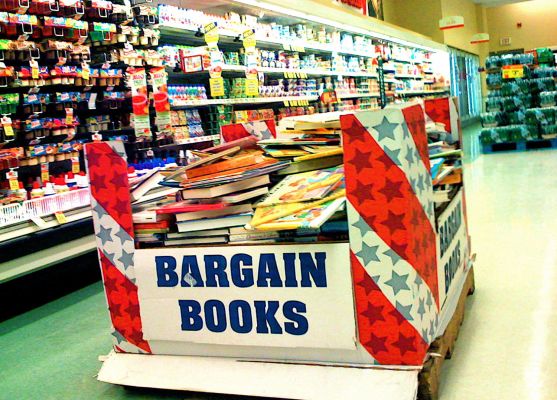The cultural exception strikes again — France’s National Assembly will most probably pass the so-called ‘anti-Amazon’ law in the coming days. In a few months, Amazon won’t be able to offer free shipping for books in order to protect independent bookstores. It’s a logical evolution of the Lang Law.
Book prices in France are hard to understand from a foreigner’s perspective. Back in 1981, French Minister of Culture Jack Lang established a fixed price for books sold in France. Since then, publishers have been fixing the price, printing it on the back of the book.
Retailers from supermarkets to independent book sellers have had no choice but to sell those books at the official price. If you really wanted to compete on price, you could discount the book 5 percent below the publisher’s price — many bookstores chose to take advantage of this exception, but 5 percent was a reasonable price difference.
When it was created in 1981, the government wanted to protect independent bookstores against supermarket chains. It worked really well, and independent bookstores are still around, for the most part. In fact, similar fixed book price laws started popping up in other European countries, such as Italy, Portugal, Spain or Germany.
But bookstores had no idea that the most serious threat had yet to come — Amazon, Fnac and a few others opened their online stores.
Despite having to wait a couple days before getting your book, the two heavyweights Amazon and Fnac found a way to remain competitive: they priced the books 5 percent below the publisher’s price and they offered free shipping, all the time, for all book orders. Independent bookstores saw that as unfair competition.
Filippetti says that she has nothing against Amazon despite the law’s informal name — but free shipping has to stop.
As Amazon bills from Luxemburg where sales tax is very low, this model was sustainable and allowed the company to gain market share. The company is playing its usual market share game in France as well — profit and margins are not as important as increasing sales. Theoretically, the company can flip a switch any day now, increase prices and start the money-making machine.
Today’s French Minister of Culture Aurélie Filippetti says that she has nothing against Amazon despite the law’s informal name — but free shipping has to stop. In a few months, online retailers will have to choose between free shipping and the 5 percent discount.
If they choose the 5 percent discount, it won’t deduct 5 percent from the book price, but from shipping. For example, a $10 book with $2 of shipping costs can be priced at $9.50 — and consumers will still have to pay $1.50 of shipping costs.
The National Assembly and the Senate both successively passed the law project. The National Assembly now has to vote one last time. But since the text was only slightly modified, it should easily pass.
How Fixed Book Prices Can Actually Increase Competition
When it comes to book pricing, there is another interesting case: the ebook price-fixing case in the U.S. Apple was found guilty of fixing ebook prices with its iBookstore.
When the iBookstore was unveiled in 2010, the so-called agency pricing model took over ebook stores. Apple let publishers fix their prices, but forced them to put the same price tag on the Kindle Store, the iBookstore and every other ebook store.
That’s when the DOJ wrote an antitrust complaint. But instead of fostering healthy competition by letting ebook sellers set their own prices, competitors stumbled — Nook ebook sales dropped. The same is probably happening for other stores.
Now, Amazon is the undisputed leader. By preventing the agency model, the DOJ created an effective near monopoly. It gives a lot of power to the retailing company when it comes to negotiating profit sharing with publishers.
With France’s ‘anti-Amazon’ law, the government is going in the opposite direction and reiterating the long-standing tradition of protecting independent bookstores and publishers. Yet, is it going too far?
In December, France’s second biggest bookstore chain Chapitre filed for bankruptcy. $12.3 million (€9 million) of public money will be invested in the book industry in 2014 as online competition is increasingly hurting the industry.
So the real question isn’t whether the law is going too far, but whether it will be enough to save the 2,500 independent bookstores in France.
(Image credit: Casey Bisson)
